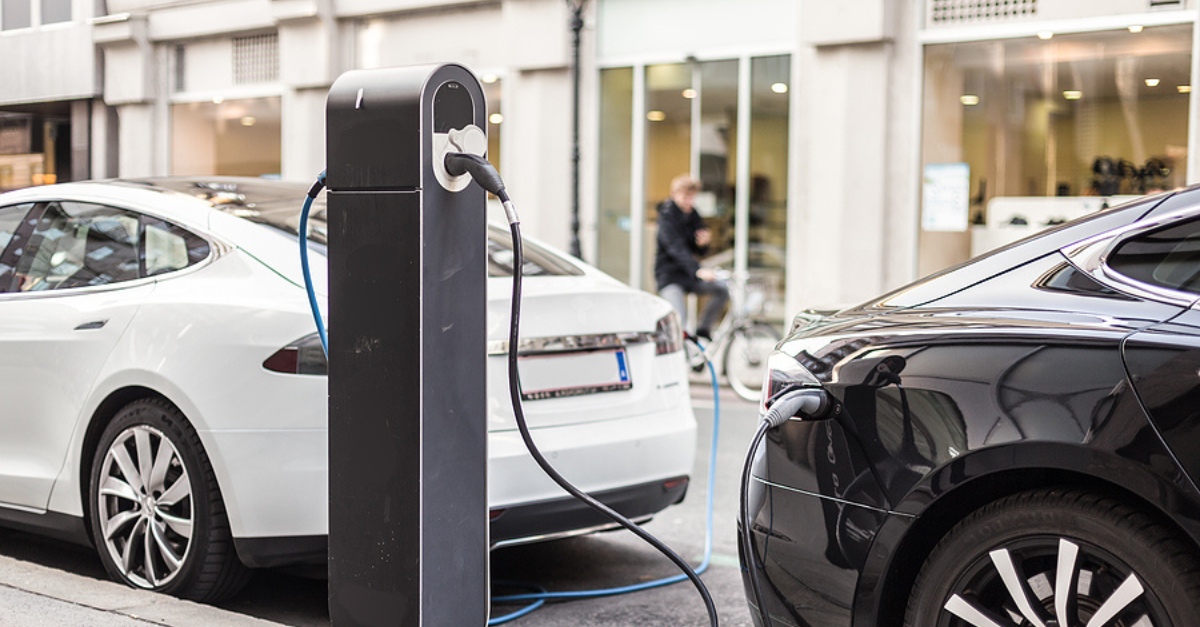A year in review for the EV market and what’s to come in 2024
2023 saw significant progress for the electric vehicles (EV) industry. According to official data from the Society of Motor Manufacturers and Traders (SMMT), the UK registered over 286,000 fully electric vehicles by November last year. Yet, we also saw great economic uncertainty and political controversy.
Here are four of the key moments that shaped the EV industry in 2023, along with two predictions of what I think we might see in 2024.

2023 unwrapped
Ban on the sale of petrol and diesel cars delayed
In September, Rishi Sunak postponed the UK’s ban on the sale of new petrol and diesel cars by five years until 2030.
However, the Zero Emission Vehicle (ZEV) mandate requires car manufacturers to sell a certain number of EVs each year, so production will continue to grow. By 2030, 80% of new cars and 70% of new vans must be electric. Manufacturers failing to comply will face hefty penalties from January 2024 onwards.
So, this delay is unlikely to make a huge difference to the UK’s transition to electric.
EV charging simplified
Lack of consistency across the UK’s public charge point network has long troubled EV drivers. Tariffs vary, as do payment apps. And drivers often struggle to find accurate information about working charge points.
In July, the government announced new regulations for public charging designed to improve the charging experience. They include contactless payment options at all new public chargers of 8kW and above. They also provide real-time information on the charge station status.
This is the first big move towards consistent minimum standards for EV charging in the UK.
UK passes 50,000 charge point milestone
December statistics show that there are now more than 50,000 charging points across the UK. This is up 46% since November 2022. But we’re still a long way from meeting the target of 300,000 EV charging points by 2030.
That’s why the government announced an additional investment of over £380 million in public charging. Meanwhile, ChargeUK, a trade association of charge point installers and operators, has committed to invest more than £6 billion by 2030.
I expect this to be a key focus for industry commentators this year.
Battery technology advances
The EV battery market is rapidly evolving. We’re seeing significant improvements in energy density, range, and charging times – addressing major concerns for fleets and drivers.
I bought my first EV nine years ago. It did 60 miles on a single charge. My current EV does 240 miles. SMMT shared earlier last year that the average range of all EVs on the market is 236 miles, with new models in the UK averaging almost 300 miles.
One innovation from Silicon Valley start-up, QuantumScape, caught the eye of the EV industry. By using solid-state technology it’s increased energy density in its batteries, enabling longer ranges. QuantumScape's advances have supposedly tripled the energy density of Tesla Inc's batteries. Achieved through a safer, more sustainable design.
With technology constantly advancing, this is undoubtedly one to watch in 2024.
Predictions for 2024
Could net zero policy re-evaluations be on the cards for businesses?
As we enter the new year, I‘m reminded of just how challenging the current financial climate is. We’ve seen struggles across many industries, with businesses doing their best to keep the lights on and their people employed.
Tougher economic conditions mean 2024 may bring a fresh perspective for many, with hints of re-evaluations of net zero from some businesses. This will include how EVs fit within their plans. The focus for many companies and fleet managers alike will be to reduce costs and boost efficiencies. So, companies may delay or even cancel some investments.
However, from listening to customers, we’re confident in the large strategic fleets’ commitment to the EV transition coming into this year.
We need a realistic perspective of the tough environment for many businesses in 2024. We must empathise with those organisations that are committed to net zero but can’t yet prioritise larger sustainability projects.
Rollout of more capable models
There are now more than 80 EV cars to choose from in the UK, plus more than 20 electric van models. The British Vehicle Rental and Leasing Association (BVRLA) report discovered the company car market is a big driver towards the EV transition. However, the van market is struggling.
We must encourage manufacturers to deliver a broader spectrum of fit-for-purpose models. However, if the UK van market is to commit to the switch, they also need fleet-friendly infrastructure support from local authorities. For example, more accessible chargers for large vehicles.
This additional support will play a key role in the transition to EV van fleets.


